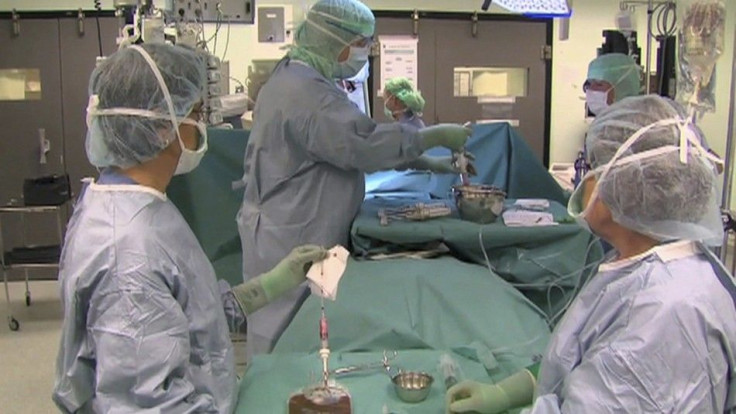China Announces It Will Stop Organ Harvesting From Executed Prisoners

The Chinese government says it will soon phase out the much-reviled practice of using the organs of executed prisoners for transplant operations, hoping to change to more ethical forms of organ donation.
Speaking for the Ministry of Health, a former deputy head, Huang Jiefu, announced that starting in November, organs used for transplant will shift to those taken from deceasead people who had voluntarily decided to donate them instead of from criminal executions. China is one of the last countries still extracting organs from prisoners.
According to the South China Morning Post, some Chinese believe harvesting the organs of executed criminals is a chance at redemption, a last sacrifice that will help others. But officials have recently changed their line, saying the practice “tarnishes the image of China.”
Huang announced the development of a voluntary, nationwide organ donation program that will be introduced in November. “I am confident that before long all accredited hospitals will forfeit the use of prisoner organs,” he said, adding that 165 hospitals have already announced their commitment to no longer use the organs of executed inmates and rely solely on consenting donations.
While the practice of organ harvesting is a controversy in itself, China’s harsh capital punishment laws are a contributing factor to the greater issue. According to an academic article by Arthur Caplan of the University of Pennsylvania, approximately 5,000 people are executed every year in China. Iran, number two in executions, kills a tenth as many. Controversy has arisen after allegations were made that “brutal” executions without due process were completed for the purpose of immediately obtaining the organs for donation, the study said. Other rights groups have pushed the allegations even further, saying that after the death of prisoners, organ donations are made without the consent or knowledge of families. The government vehemently denies these claims.
Some Chinese have expressed concern that the change to voluntary donations will result in a deficit of organs viable for transplant. China has already launched an experimental program in 25 municipalities and provinces as an introduction to what will soon be the nationwide program. With these new programs in place, Huang said organ transplants that originated from prisoners had fallen from 64 percent at the end of last year, to just under 54 percent so far this year. And the voluntary program keeps gaining traction. Voluntary donations have risen from just 63 cases for the entire year of 2010 to averaging 130 cases per month this year.
Still, it is not all good news. Organ donations are still inadequate for the estimated 300,000 patients who are put on waiting lists every year, of which usually 3 percent are able to receive organs in time.
© Copyright IBTimes 2024. All rights reserved.






















